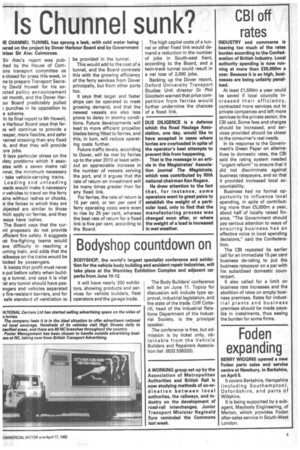CBI off rates
Page 5

If you've noticed an error in this article please click here to report it so we can fix it.
INDUSTRY and commerce is bearing too much of the rates burden according to the Confederation of British Industry. Local authority spending is now running at more than 00,000m a year. Because it is so high, businesses are being unfairly penalised.
At least £1,500m a year could be saved if local councils increased their efficiency, contracted more services out to private companies and left more services to the private sector, the CBI said. Some fees and charges should be increased, and services provided should be closer to the consumer's real needs.
In its response to the Government's Green Paper on alternatives to domestic rates, the CBI said the rating system needed "urgent reform" to ensure that it did not discriminate against business ratepayers, and so that it provided increased local accountability.
Business had no formal opportunity to influence local spending, in spite of contributing more than £5,000m a year, about half of locally raised finance. "The Government should pay serious attention to ways of ensuring business has an effective voice in local spending decisions," said the Confederation.
The CBI repeated its earlier call for an immediate 15 per cent business de-rating to put the business ratepayer on a par with his subsidised domestic counterpart.
It also called for a limit on business rate increases and the abolition of rates on empty business premises. Rates for industrial plants and business premises should be made payable in instalments, thus easing the burden for some firms.




































































